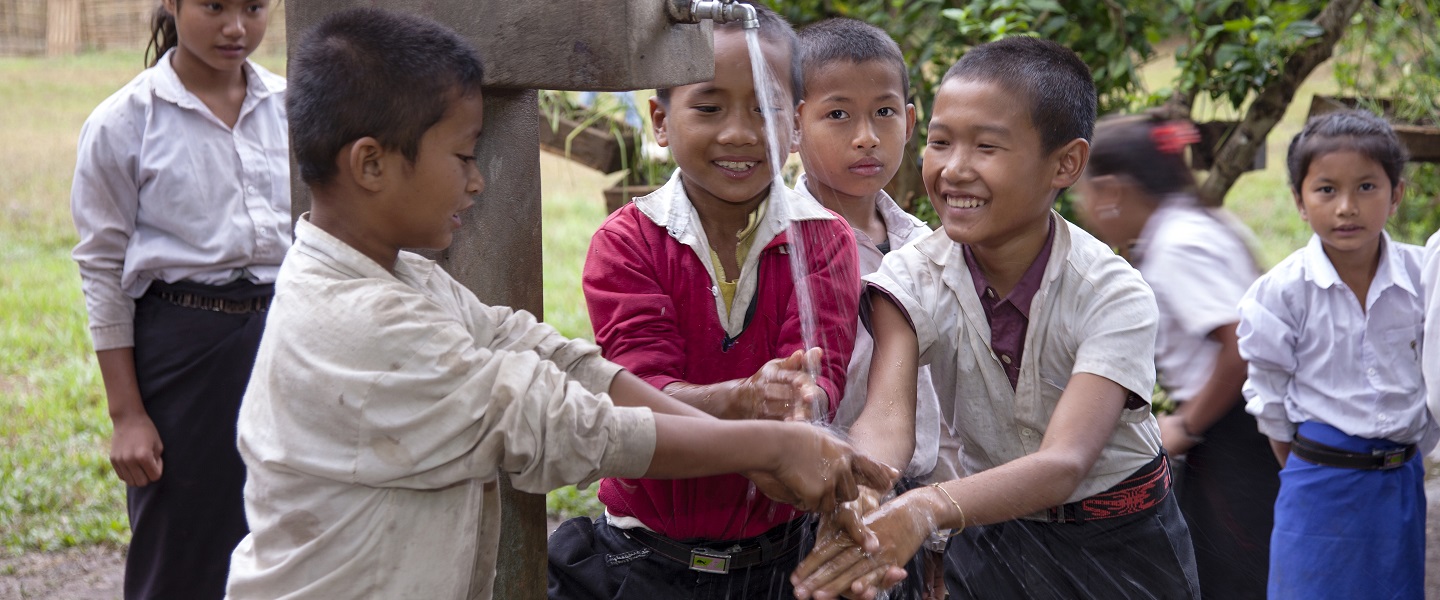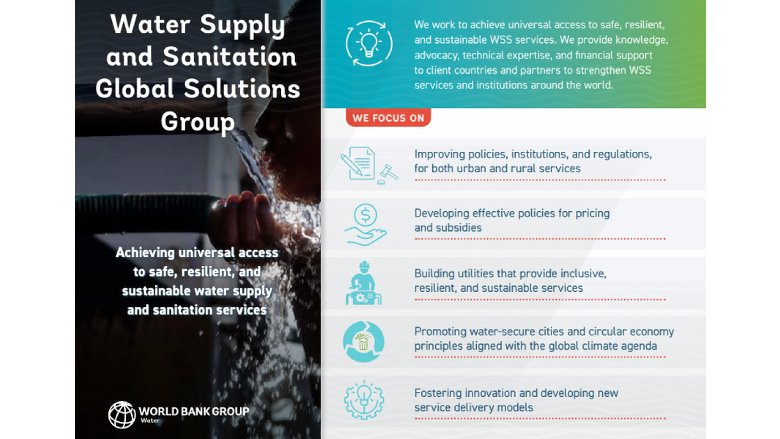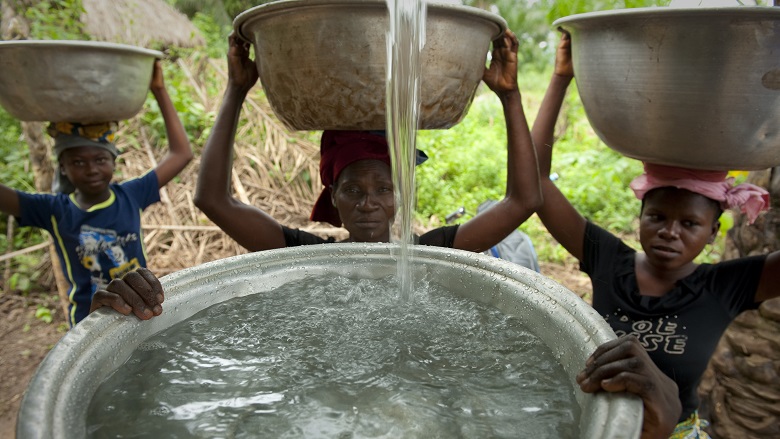Water is at the center of economic and social development; it is vital to maintain health, grow food, manage the environment, and create jobs. Despite water’s importance, globally, 2 billion people lack access to safely managed drinking water and 3.6 billion people lack access to safely managed sanitation.
However, increasing access is not enough. The Sustainable Development Goals (SDGs) on Water and Sanitation proposes a broader agenda: By 2030, universal and equitable access to safe and affordable drinking water for all, and access to adequate and equitable sanitation and hygiene for all and end open defecation, paying special attention to the needs of women and girls and those in vulnerable situations. This goal reflects the growing importance of water and sanitation as a human right. Additional targets that go beyond access are also being considered, such as improving water quality by reducing pollution, and substantially increasing water-use efficiency.
The scale of the challenge is large and becoming more complex. Climate change, population growth and economic development are pushing the limits of the world’s finite water resources. In some cases water scarcity is already constraining economic growth. Lack of access to improved water supply and sanitation services impose huge costs on society, especially for the poor. Even where access exists, services have been characterized for decades by poor management, inadequate financing and low levels of investment. Very few water or wastewater utilities in the developing world recover adequate operation and maintenance costs from customers and only a handful recovers debt service and depreciation. Despite the importance of water for development, African countries allocate no more than 0.5% of their GDP to the sector. The uncertainties brought about by political economy and climate change only add to this sector’s already considerable challenges. Not surprisingly, world leaders now rank water as one of their top critical issues.
Over the past ten years, the World Bank Group (WBG) — the largest multilateral source of financing for water supply and sanitation (WSS) in developing countries — has approved 262 water projects, amounting to US$31.2 billion, of which US$21.3 billion, or 68 percent, are categorized as WSS projects.
Last Updated: Oct 05, 2022




